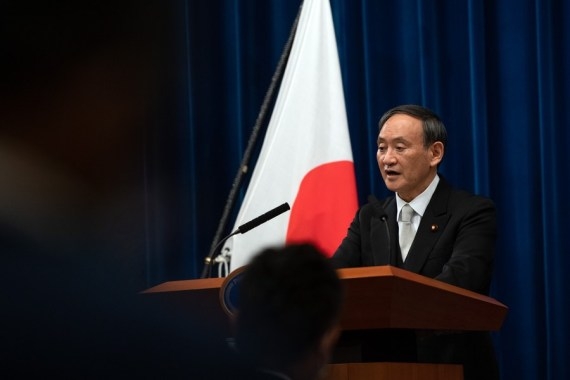Japan has promised to supply coronavirus vaccines to the Pacific Island nations and territories this month through the UN-managed COVAX global vaccine programme. He announced this at an online meeting with the over two dozen Pacific Island nations and territories on Friday.
Besides the vaccines, Japanese Prime Minister Yoshihide Suga also promised to support the nations in economic development, maritime security, climate change and combating the coronavirus pandemic, reports Kyodo News.
Japan has been hosting the meeting with the Pacific Islands every three years. This time the nations were joined by Australia, New Zealand and the French territories of New Caledonia and French Polynesia. The online summit came about due to the spread of the coronavirus as the meeting was earlier planned to be held in Japan.
An underlying idea behind this summit is also to counter China’s presence in the region. According to the Japanese Ministry of Foreign Ministry (MoFA), Suga had earlier separately spoken with the leaders of the six island nations of Fiji, Kiribati, Palau, Papua New Guinea, Tuvalu and Vanuatu, seeking support for creating a Free and Open Indo-Pacific (FOIP) region.
Earlier this week, the Asian Development Bank (ADB) too gave nod to a new five-year strategy for the region. The new strategy focuses on building resilience for the island nations suffering from the coronavirus shock. The ADB will work in tandem with Japan, Australia and New Zealand along with other global development partners to implement the strategy.
ADB DG for the Pacific, Leah Gutierrez said: “ADB’s work in the Pacific has evolved due to the massive changes brought on by the Covid-19 pandemic and this new Pacific Approach reflects those ongoing strategies while adopting a new and tailored approach to every element of our work in these countries”.
The Pacific Approach 2021-25 strategy has evolved due to the crisis brought upon by the Covid-19 pandemic. It was prepared through a participative process with the governments, development practitioners, the civil society and the private sector. Climate change, disaster risk reduction, economic recovery and building capacity of the island nations will be part of the strategy.




















